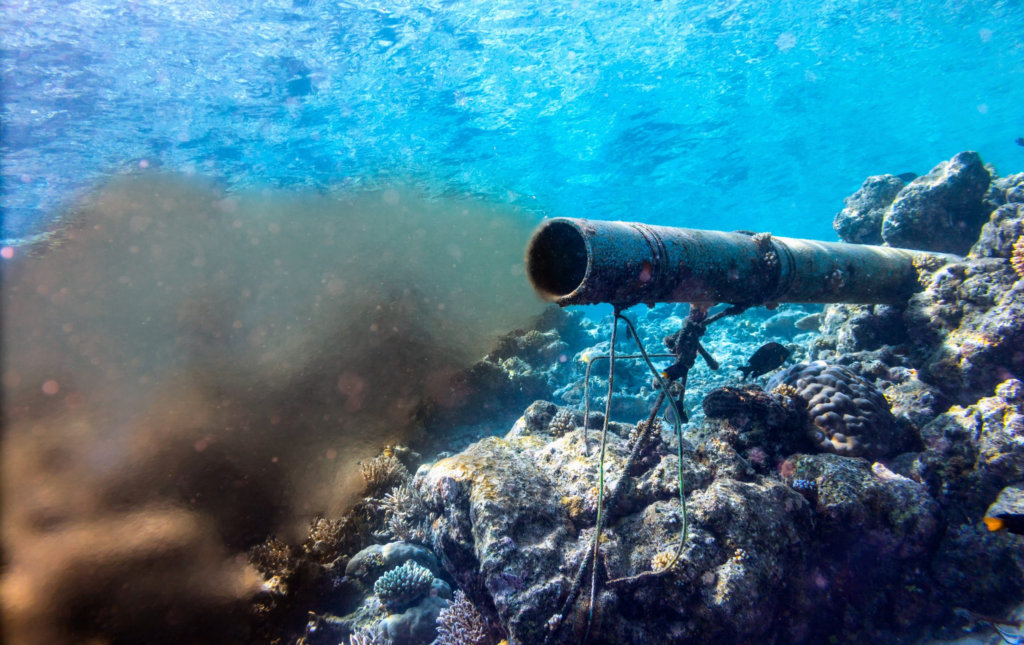Meaning
The term “chemical pollution” refers to the presence or increase in our environment of chemical
pollutants that are either not naturally occurring there or are present in quantities that are
greater than their natural background values. A large portion of the synthetic substances that
pollute the climate are man-made, because of the different exercises where harmful synthetic
compounds are utilized for different purposes.
Chemical intoxication is the result of being exposed to chemical pollutants. It can happen
immediately or it can happen later, weeks or even months after the exposure happened. A
person who inhales an increased quantity of these substances may die of severe chemical
intoxication.

The majority of chemical pollution is brought about by organic or inorganic chemicals called
chemical compounds. Compounds that are used over a large area and are persistent—they
don’t break down easily in nature—are the most common chemical pollutants. The majority of
agricultural and gardening pesticides, herbicides, and insecticides, as well as chlorinated
solvents used in numerous industrial processes and dry cleaning activities, are examples.
Chemical contaminants can be divided into naturally occurring and man-made categories based
on their chemical structure. They can be organic or inorganic (organic compounds always have
carbon and carbon-hydrogen bonds, whereas the majority of inorganic compounds do not).
Instances of Substance Poisons
Substance poisons generally result from different human exercises like the assembling, dealing
with, putting away, and discarding synthetic compounds. These happen in modern sports and
exercises, for example, petroleum treatment facilities, coal power plants, development, mining
and purifying, transportation, farming utilization of pesticides and insect sprays, as well as family
exercises.
In this sense, another example is the chemical industry, which typically involves polluted waste
streams. In fact, before being released into the environment, chemical industry waste streams
are now strictly controlled and treated. However, this was not always the case, and numerous
waste streams from chemical plants and other industrial sources contaminated numerous rivers
and surface water bodies. Despite efforts to reduce this kind of pollution, its effects are still
evident.
When released into the environment, a variety of chemical products and mixtures commonly
found in household chemicals have the potential to quickly transform into chemical pollutants.
Even common detergents contain chemicals that could be harmful to the environment! Check
the detergent products’ labels to see if they contain any potentially harmful chemicals.
The Effects of Chemical Pollution Chemical pollution can occur as a result of a variety of
chemicals coming from a variety of different sources. It can result in a variety of adverse health
effects, ranging from straightforward digestive issues to chemical intoxication and poisoning-
induced sudden death. Most of the time, the effects are caused by being exposed to a lot of
chemicals.
Consuming poisonous food, drinking highly contaminated water, or breathing highly
contaminated air are all common ways in which chemical pollution contributes to a number of
serious diseases.
Chemical intoxication can have serious health effects that can come on quickly and cause
symptoms and diseases right away or take weeks or months to show up. This depends on the
kind of pollutants and how much you are exposed to them.
Over longer time spans, aquatic sediments may accumulate a variety of chemical pollutants.
This indicates that, if no tests are carried out, chemical pollution in the ocean water may result in
mild or fatal chemical intoxication in humans following consumption of contaminated fish or
seafood, as well as serious health risks for the ecosystem.
The essay on chemical pollution emphasizes that we can control chemical pollution by changing
our mindset. Ways to Reduce Chemical Pollution You can put the advice discussed in the
chemical pollution essay to use at home or at work to accomplish this.
Conclusion
You can reduce the amount of harmful chemical pollutants that are released into the air by
taking public transportation or riding a bike rather than driving your own car. When you use
paints or chemicals in your home, remember to use them before they run out and give the rest
to people who need them. To reduce waste, recycled products are the only sensible choice.
In addition, the English essay on chemical pollution outlines some efficient workarounds. Avoid
working in cramped spaces and ensure that all chemical containers are properly sealed to
prevent spills and leaks if you work in an industry or factory that handles chemicals and
products containing chemicals.




